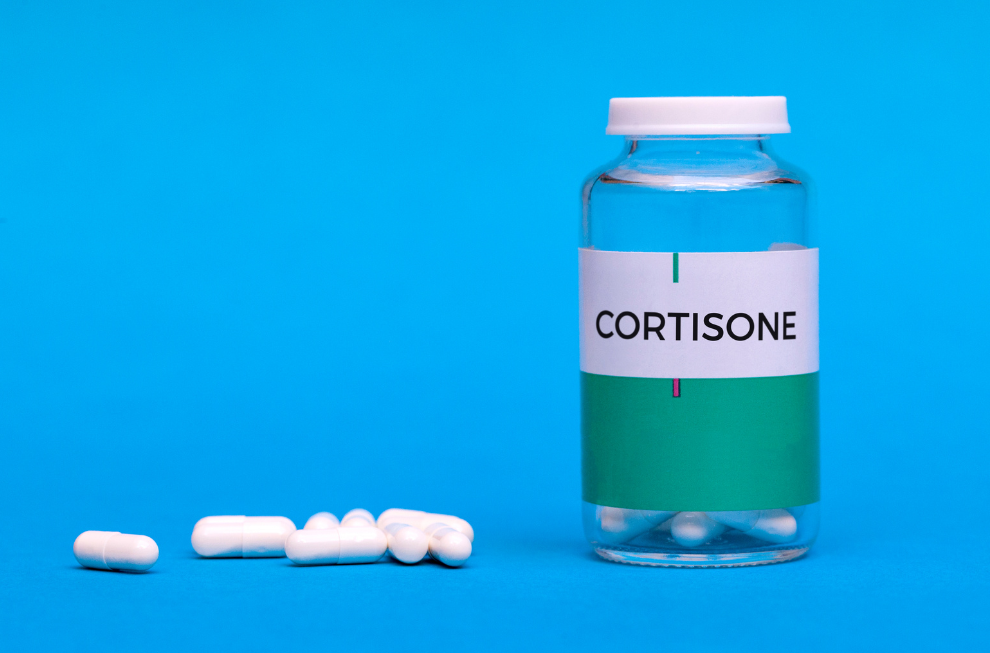
Cortisone and Sleep: What You Need to Know
Cortisone medication are often prescribed by doctors to help fight inflammation and calm down the immune system. They can be extremely helpful for people with conditions like autoimmune diseases, asthma, or serious allergies. But while cortisone can work well for these problems, it can also disturb your sleep.
One main reason is that cortisone affects melatonin, the hormone that helps control when we fall asleep and wake up. Knowing how this works can help people and doctors manage the side effects of cortisone better.
What Is Cortisone?
Cortisone is a type of corticosteroid, which acts like cortisol, a hormone your body naturally makes in the adrenal glands. Cortisol helps with stress, metabolism, and immune system function.
When given as medicine, cortisone lowers inflammation and reduces immune activity. This is helpful for conditions such as rheumatoid arthritis, lupus, and asthma. But the downside is that the extra “cortisol-like” activity can cause insomnia (trouble sleeping).
What Is Melatonin?
Melatonin is made in the brain’s pineal gland. It tells your body when it’s time to sleep. The amount of melatonin goes up in the evening when it’s dark, helping you feel sleepy, and goes down in the morning when it’s light, helping you wake up.
Melatonin works by attaching to special “receptors” in the brain. This slows nerve activity, lowers dopamine, and helps the body relax so sleep can happen.
How Cortisone Affects Melatonin:
-
Higher Cortisol Levels.
Cortisone raises cortisol levels, especially if taken at night. High cortisol makes your body think it needs to stay awake and alert. This blocks melatonin production, making it harder to fall asleep or stay asleep.
-
Disrupted Body Clock.
Normally, cortisol peaks in the morning and melatonin peaks at night—they work in opposite rhythms. But cortisone throws this off, confusing your body clock (also called the circadian rhythm). The result is poor-quality sleep.
-
Blocking Melatonin Receptors.
Some research suggests cortisone might directly interfere with melatonin’s receptors in the brain. If melatonin can’t “lock in” properly, its sleep-promoting effects are weaker.
How to Manage Cortisone-Related Sleep Problems:
Take Medication Earlier: Taking cortisone in the morning or early afternoon may reduce its effect on nighttime melatonin.
Use Light Wisely: Get sunlight during the day and limit bright (especially blue) light at night to help keep your body clock on track.
Practice Good Sleep Habits: Go to bed at the same time each night, make your room comfortable, and avoid caffeine or screens before bed.
Conclusion:
Cortisone is a powerful medicine that helps people with serious health problems, but it often affects sleep. By raising cortisol and lowering melatonin, cortisone can cause insomnia. Understanding this process can help patients and doctors use strategies to reduce sleep problems while still getting the benefits of the treatment.
References:
Moog, N. K., et al. (2019). Maternal cortisol in pregnancy, fetal exposure, and child cognitive development. Biological Psychiatry, 85(10), 856-865.
Cain, S. W., et al. (2018). Circadian disruption and sleep disorders in shift workers. Sleep Medicine Clinics, 13(3), 375-388.
Karasek, M., et al. (2018). Melatonin in humans. Journal of Physiology and Pharmacology, 60(2), 13-19.
Pavlovic, M., et al. (2019). Timing of corticosteroid administration and sleep: A systematic review and meta-analysis. Journal of Clinical Sleep Medicine, 15(8), 1159-1169.
Cortisone affects melatonin, the hormone that helps control when we fall asleep and wake up. Knowing how this works can help potentially manage the side effects of cortisone better.
In today’s busy world, sleep often gets overlooked. But research shows that sleep is very important for keeping memories strong and helping you remember the things you learn.

